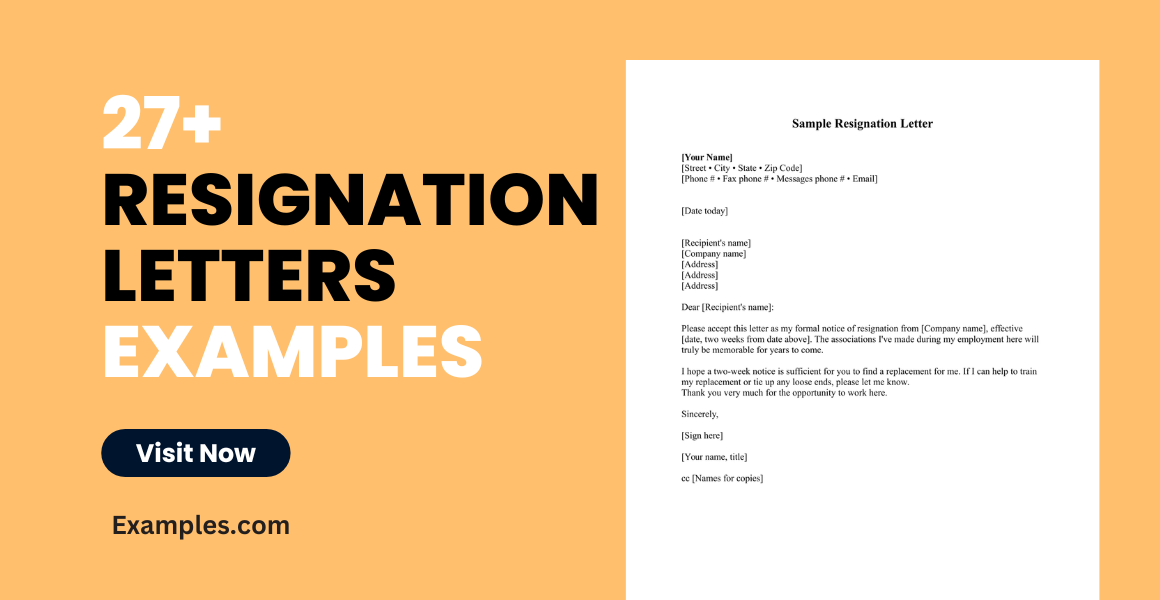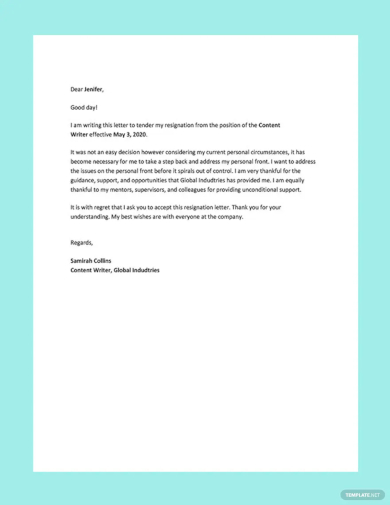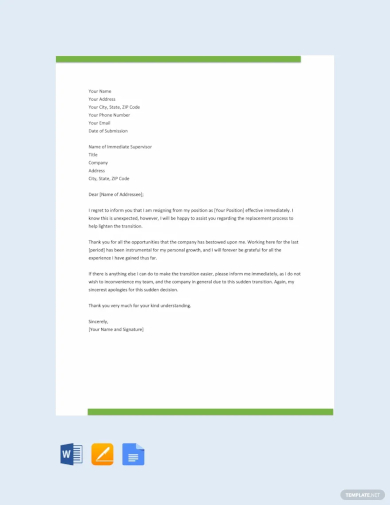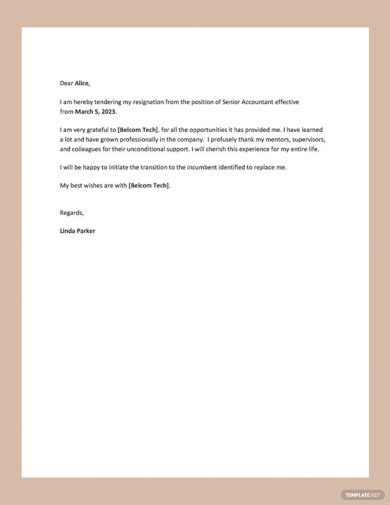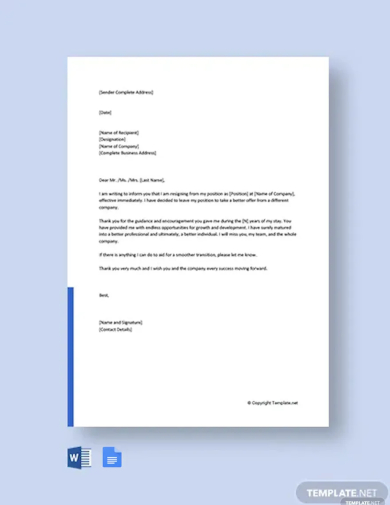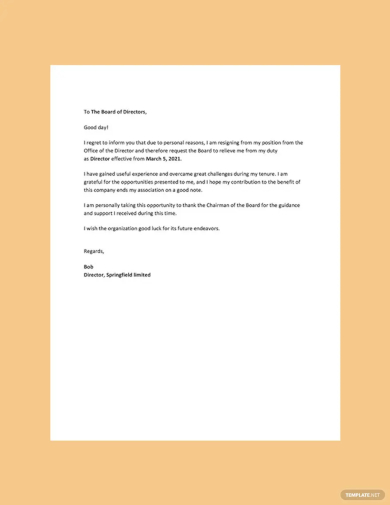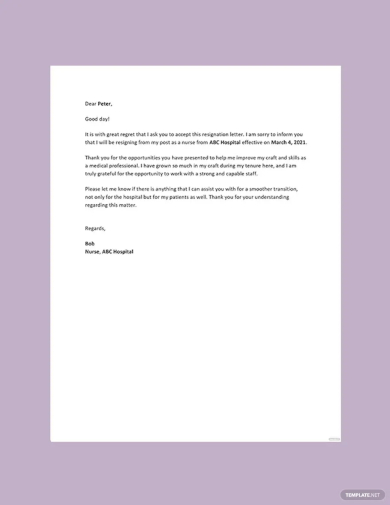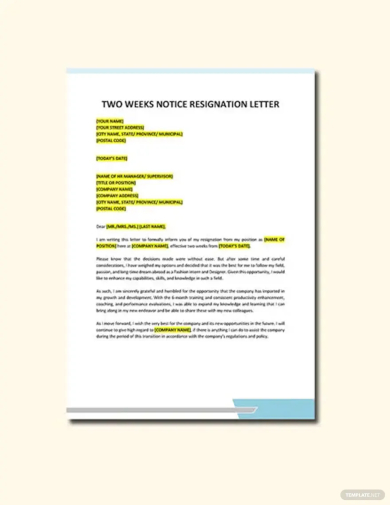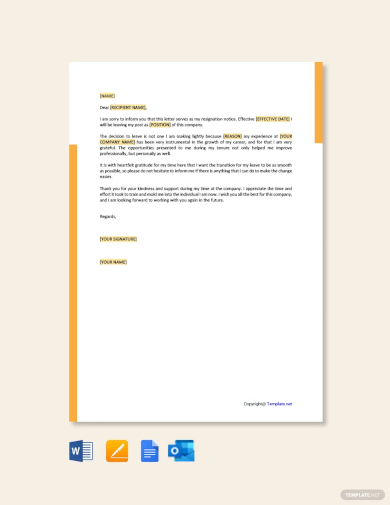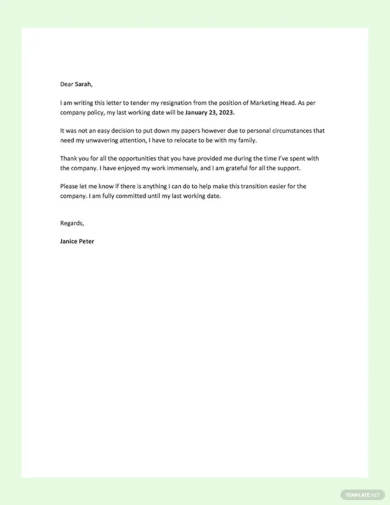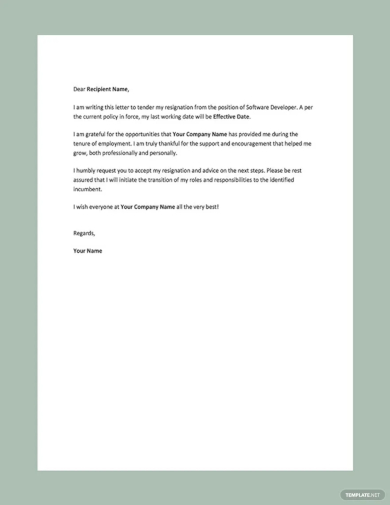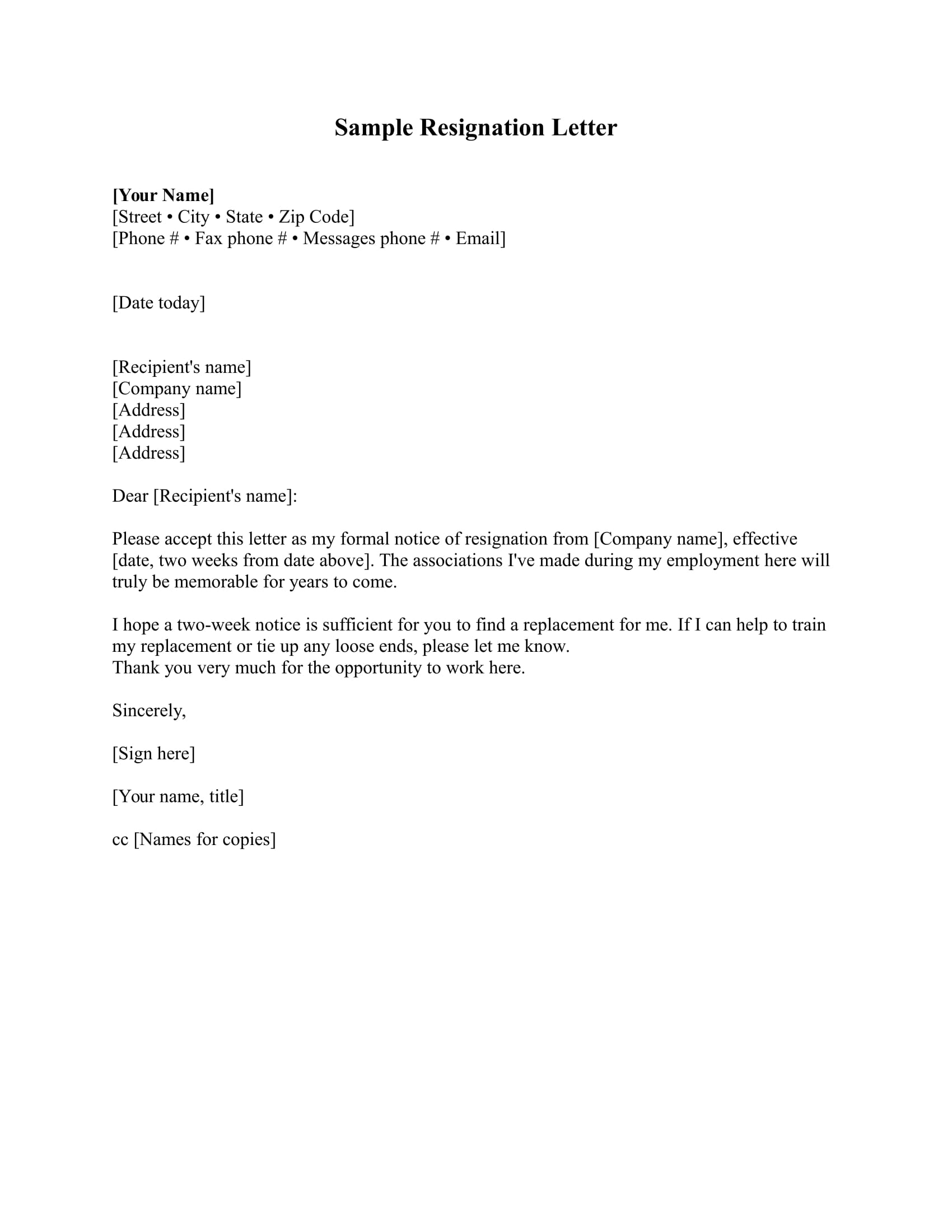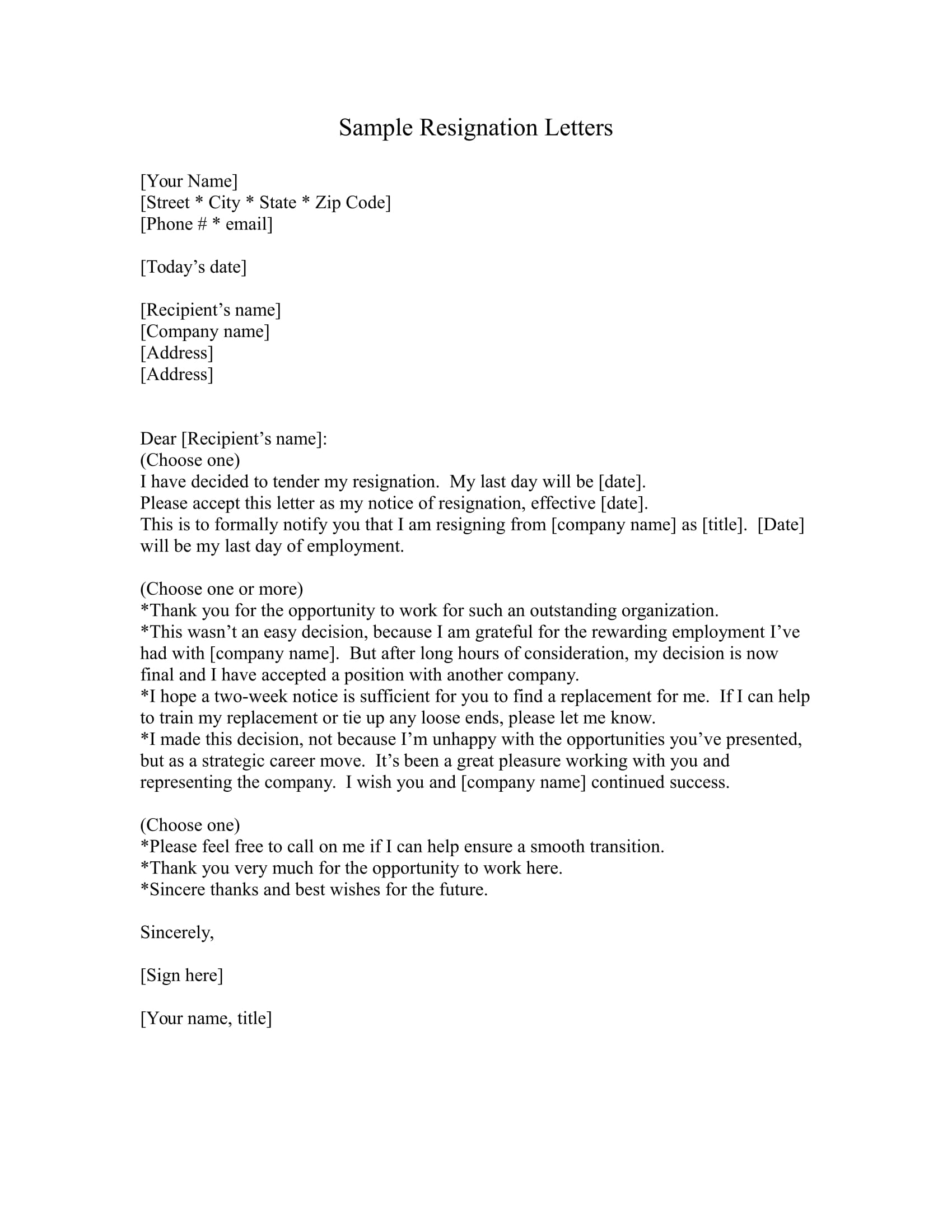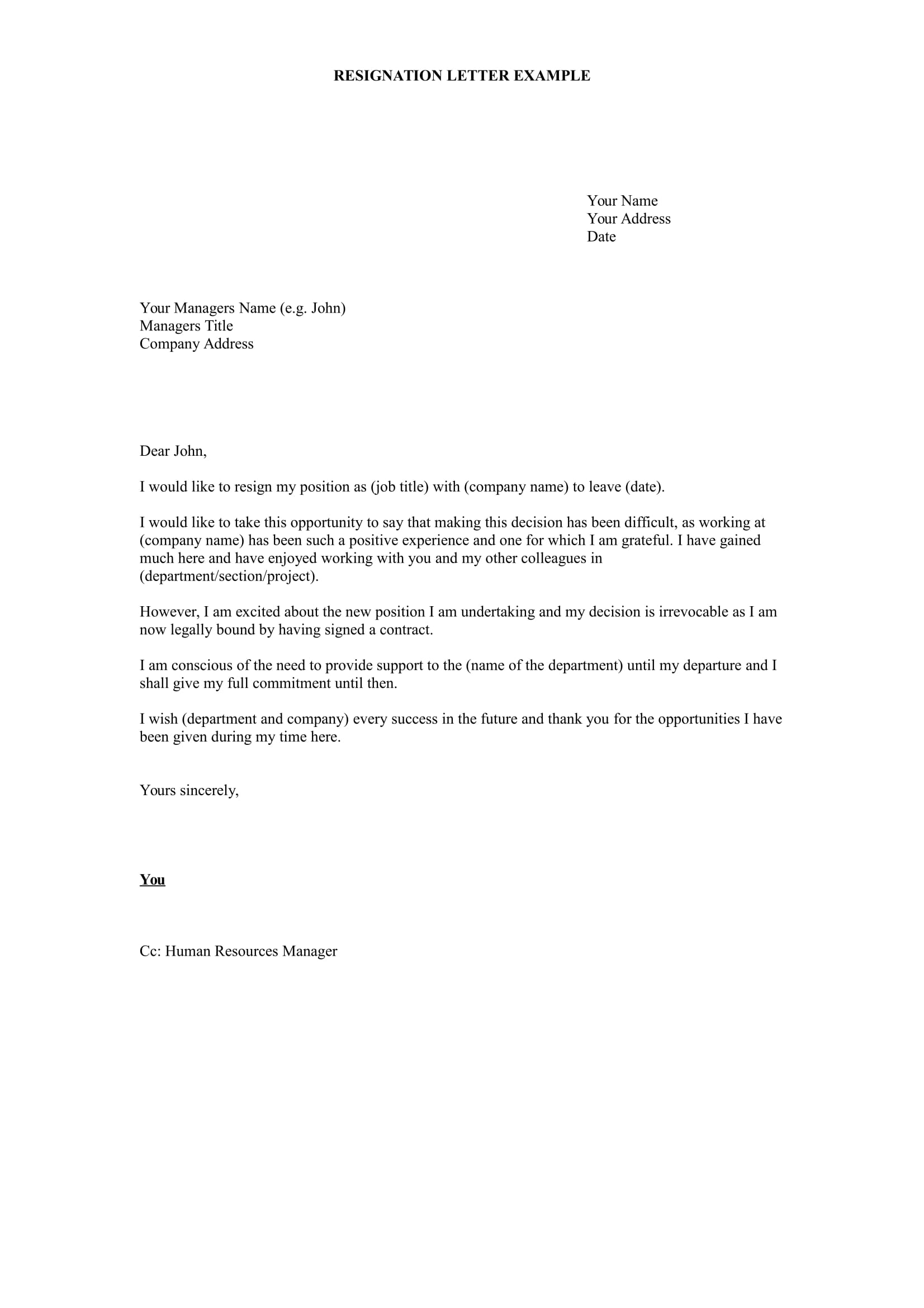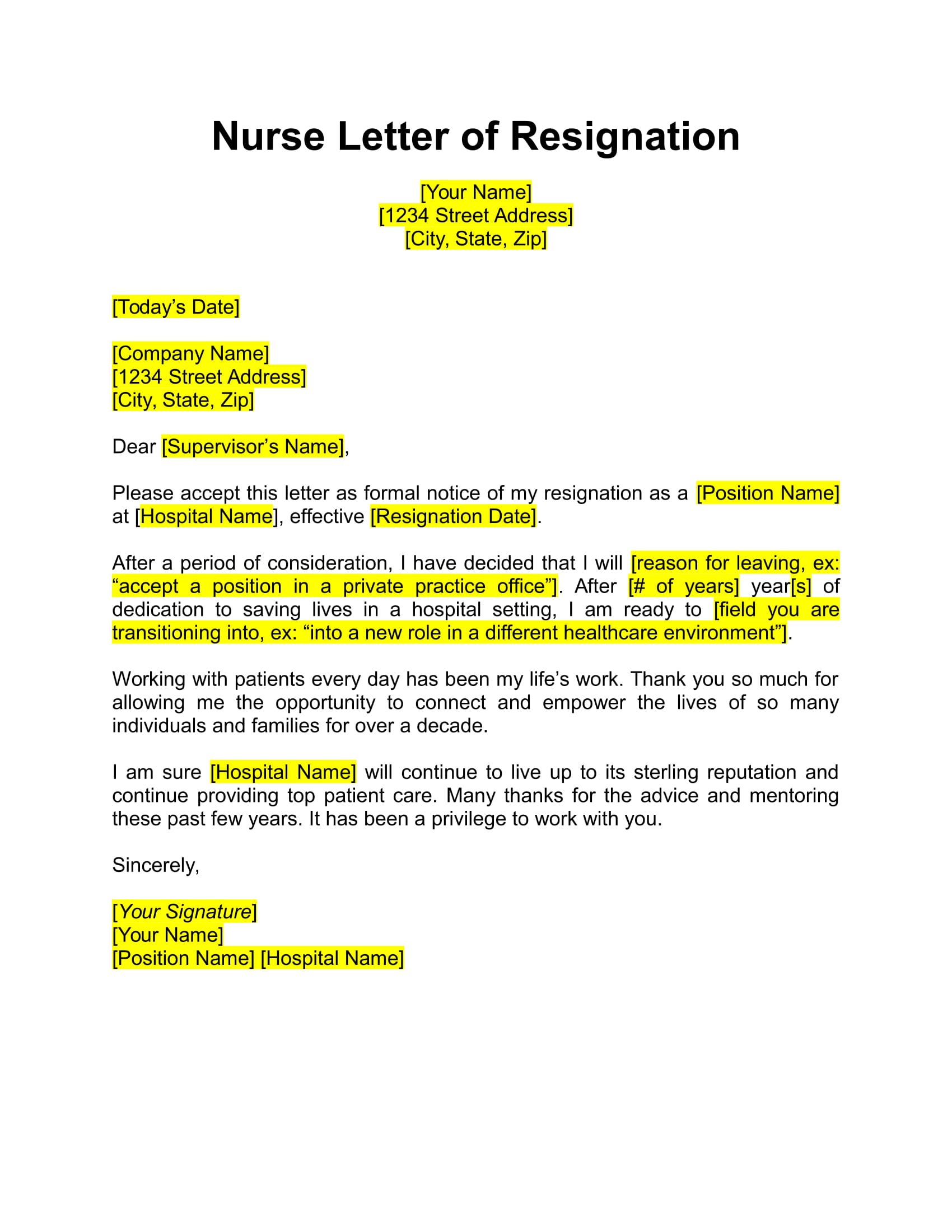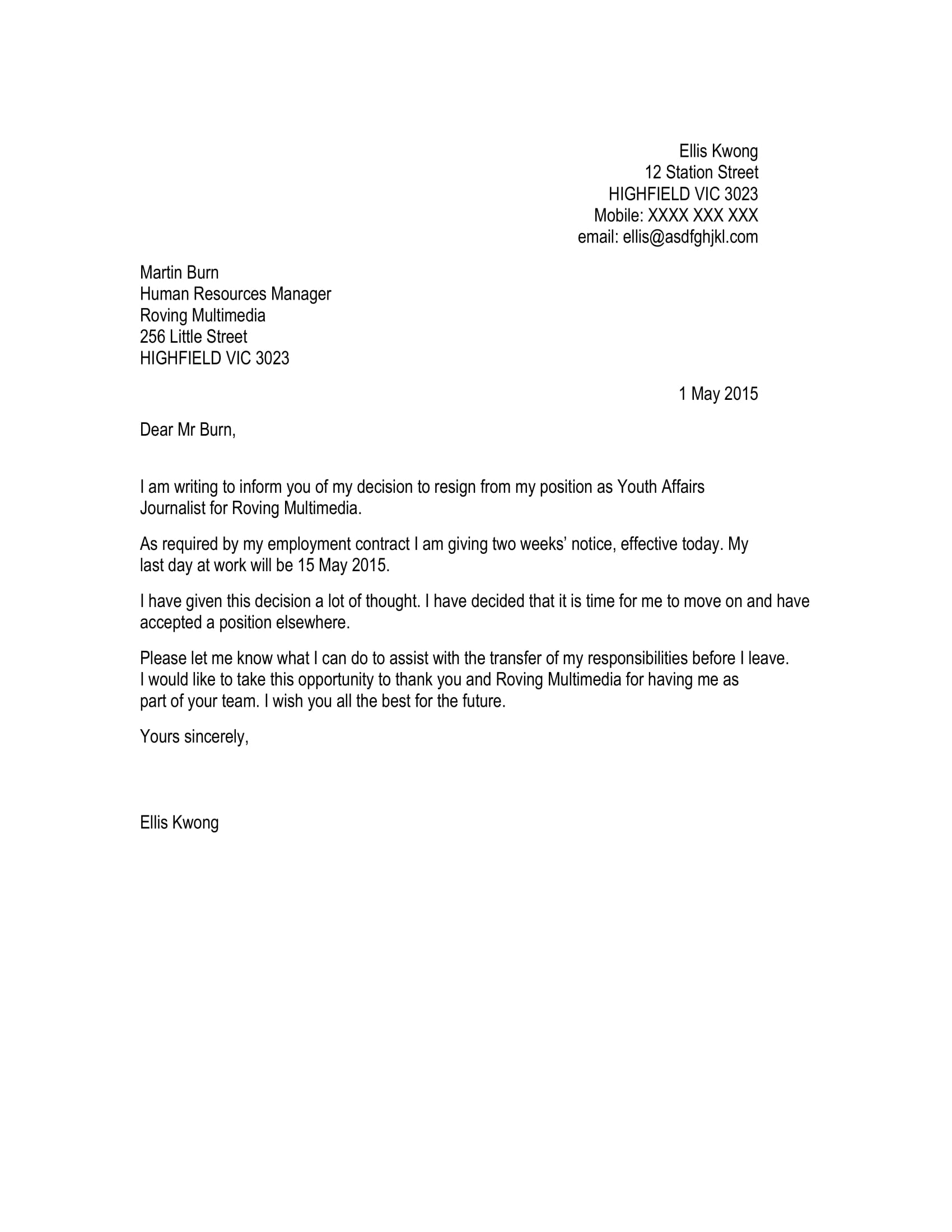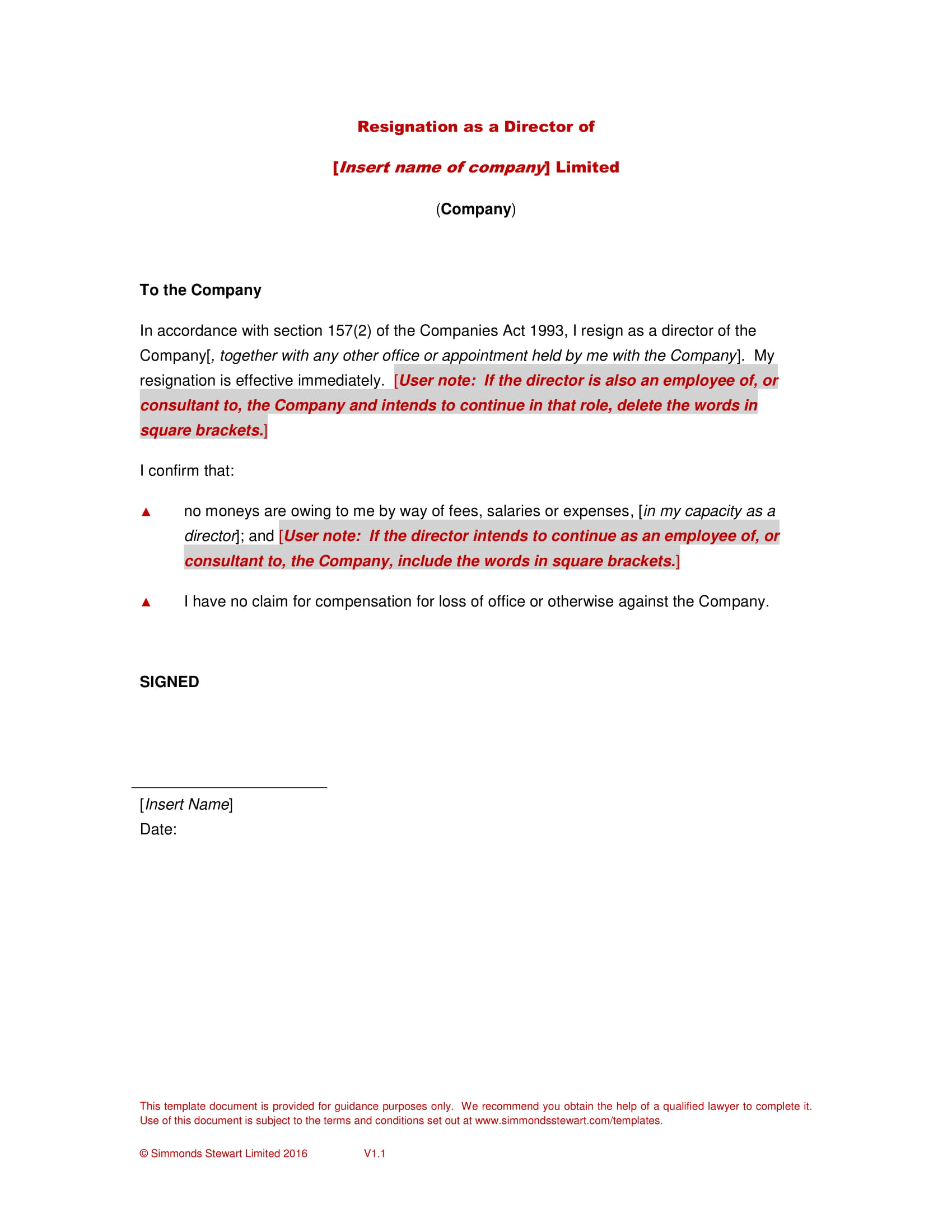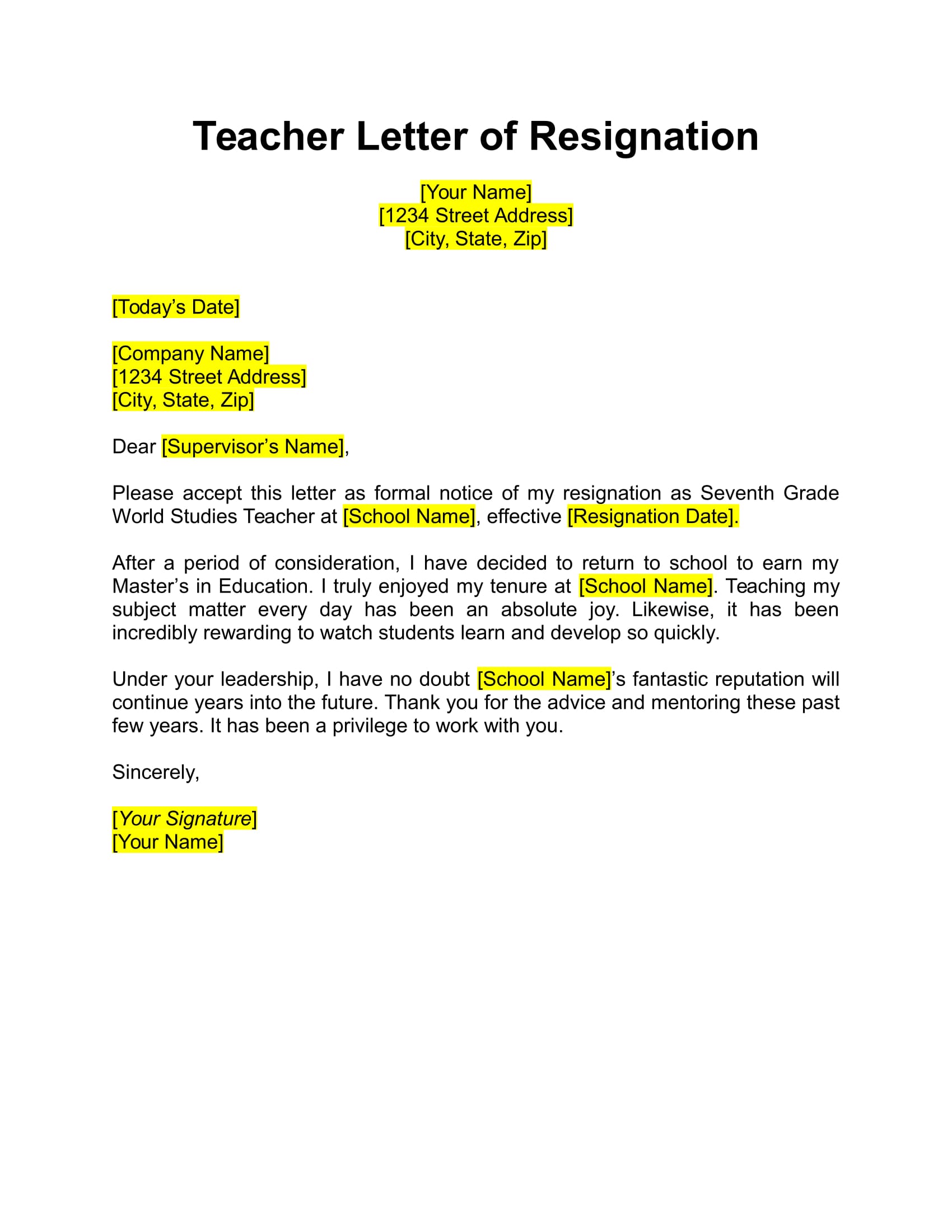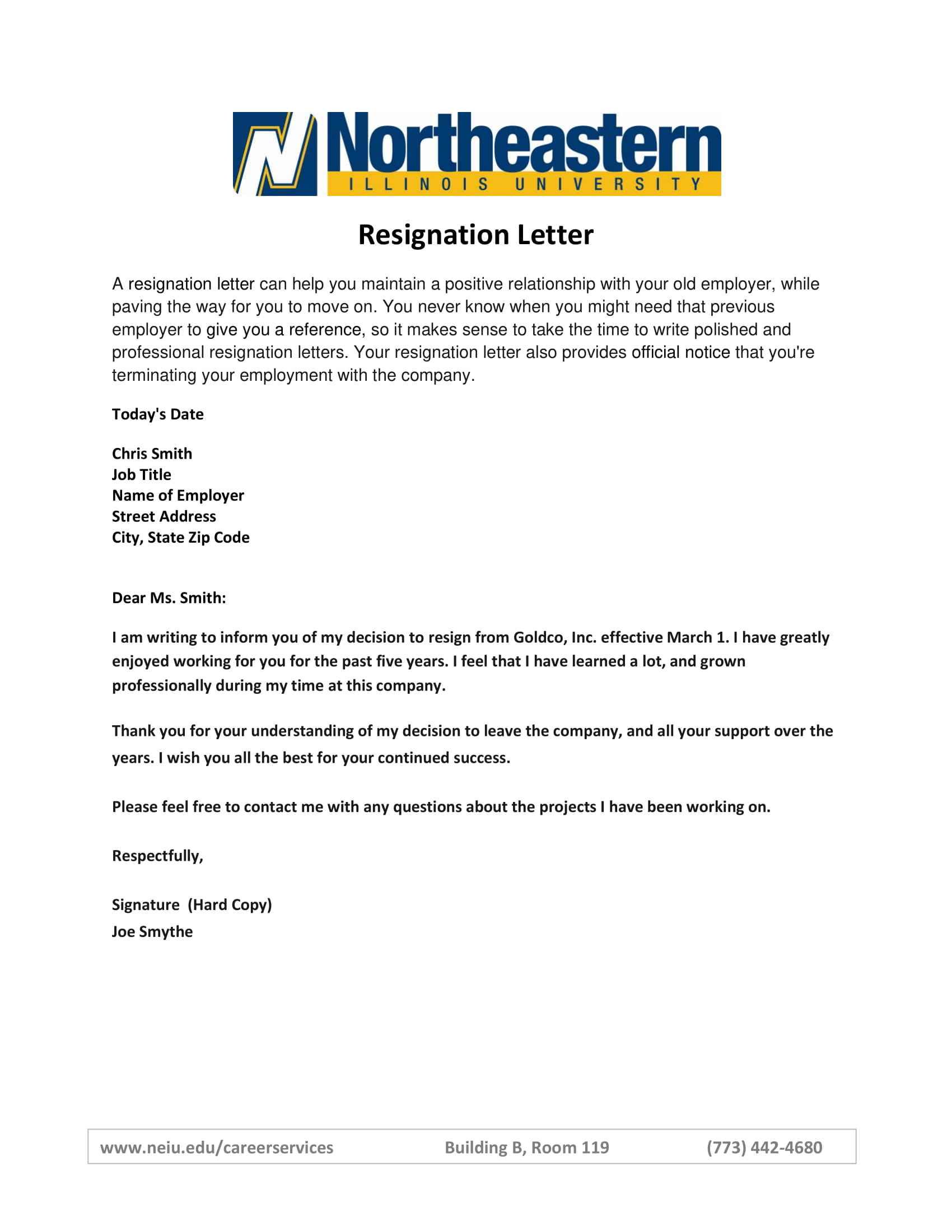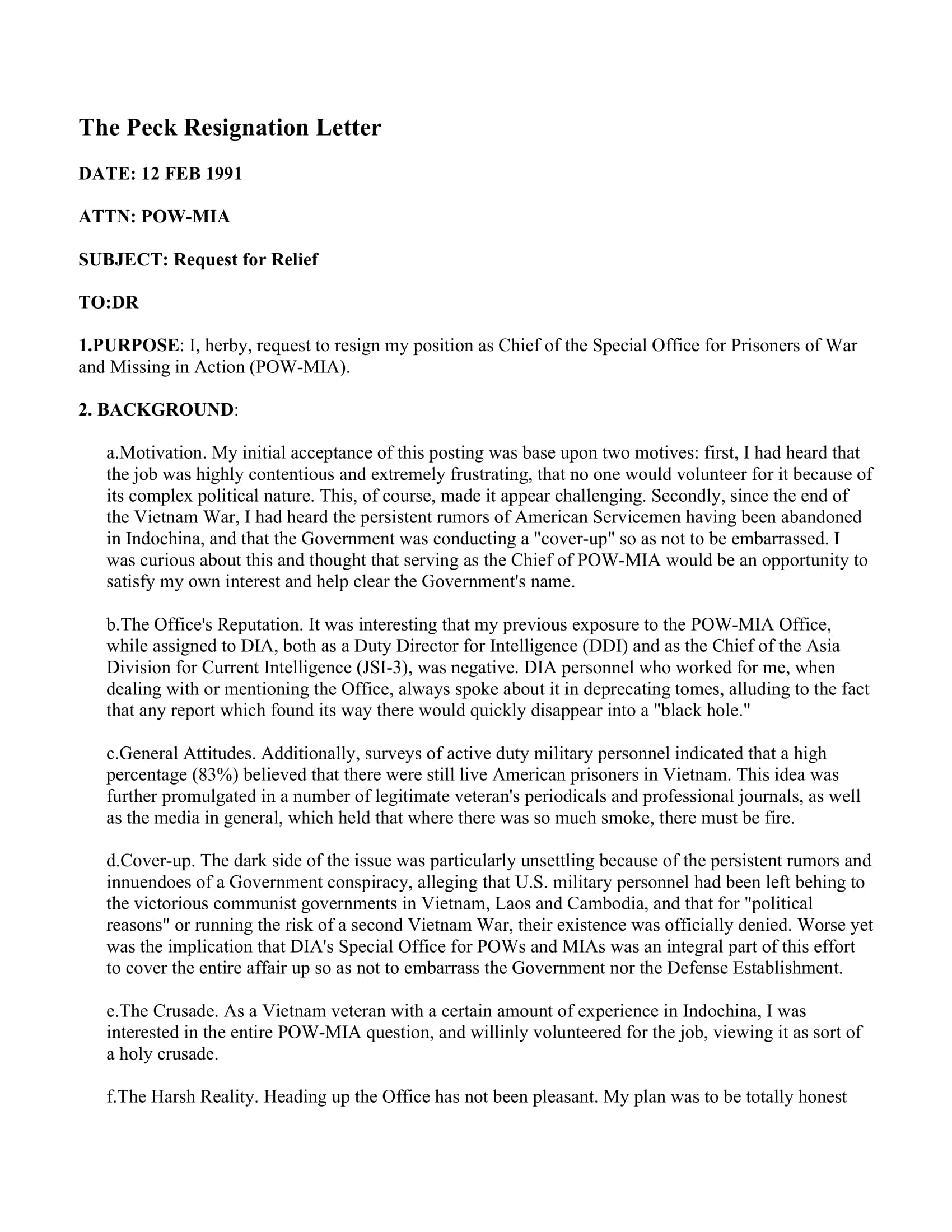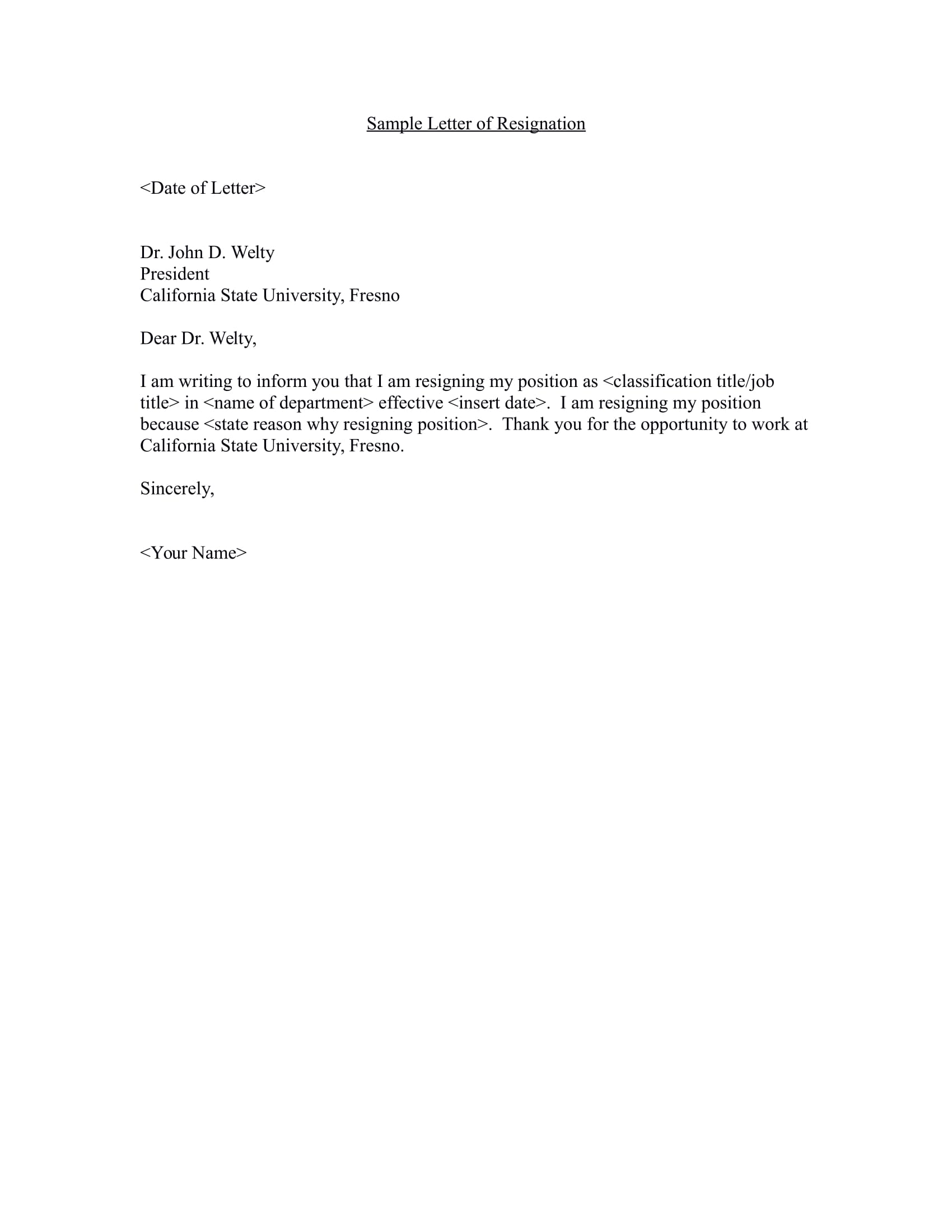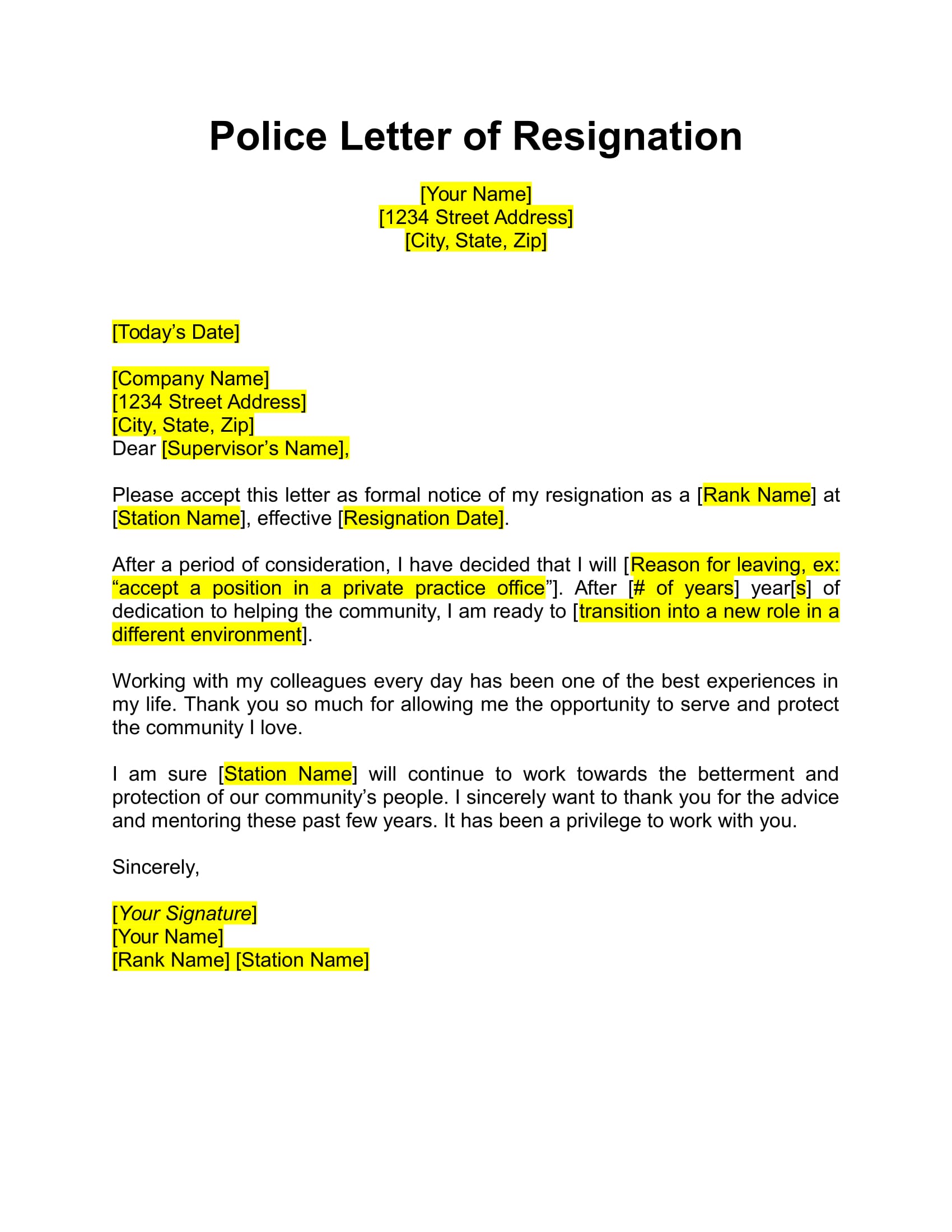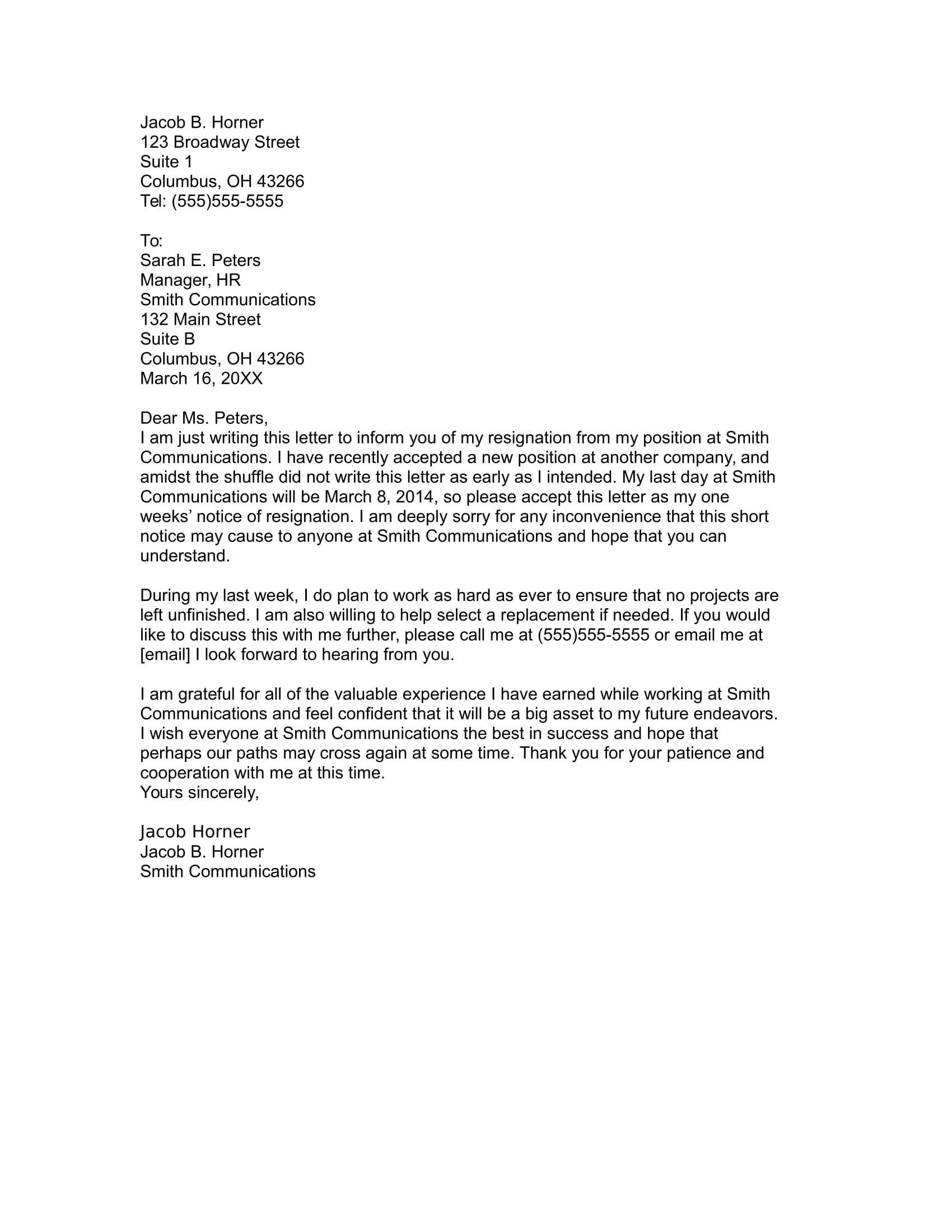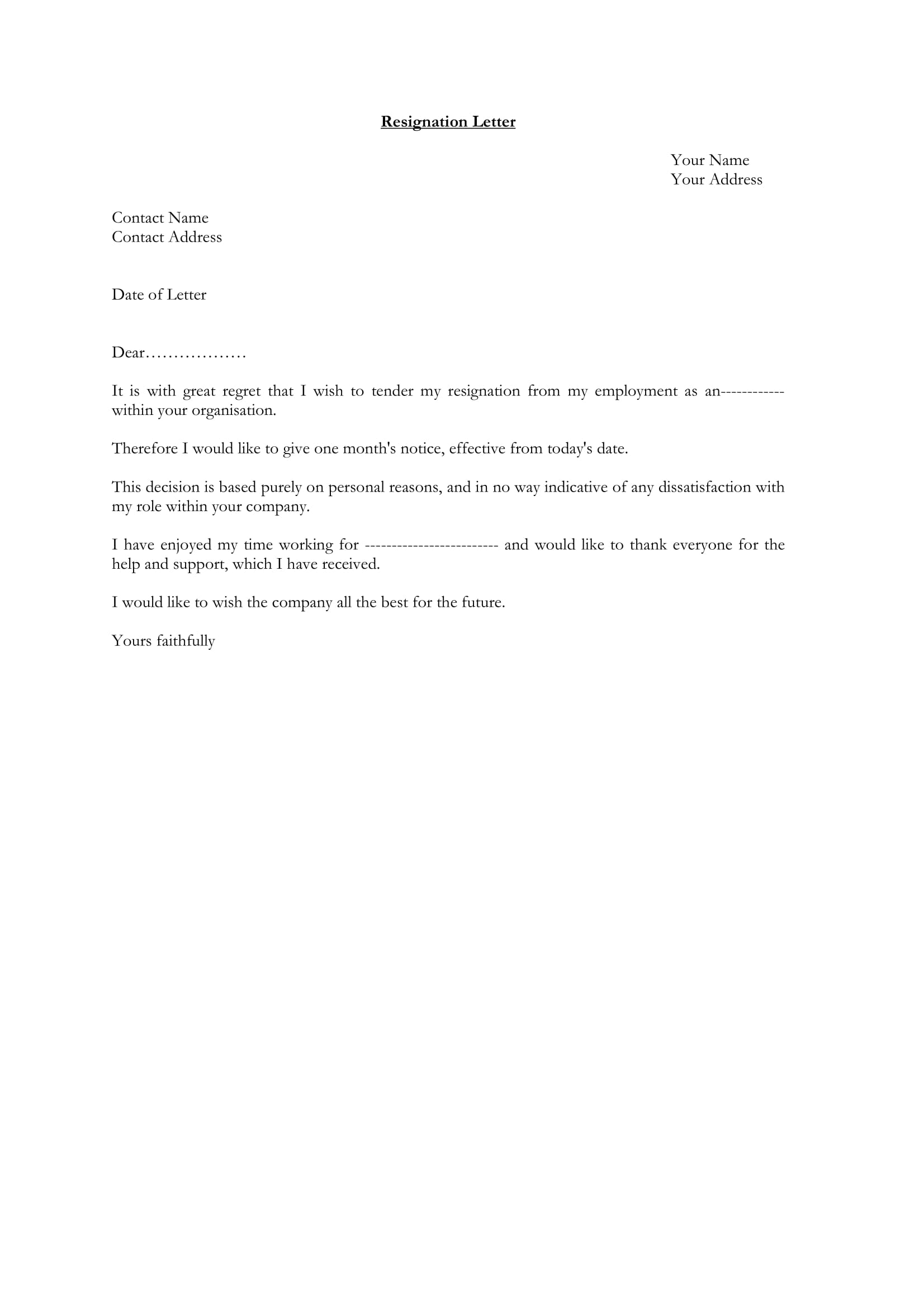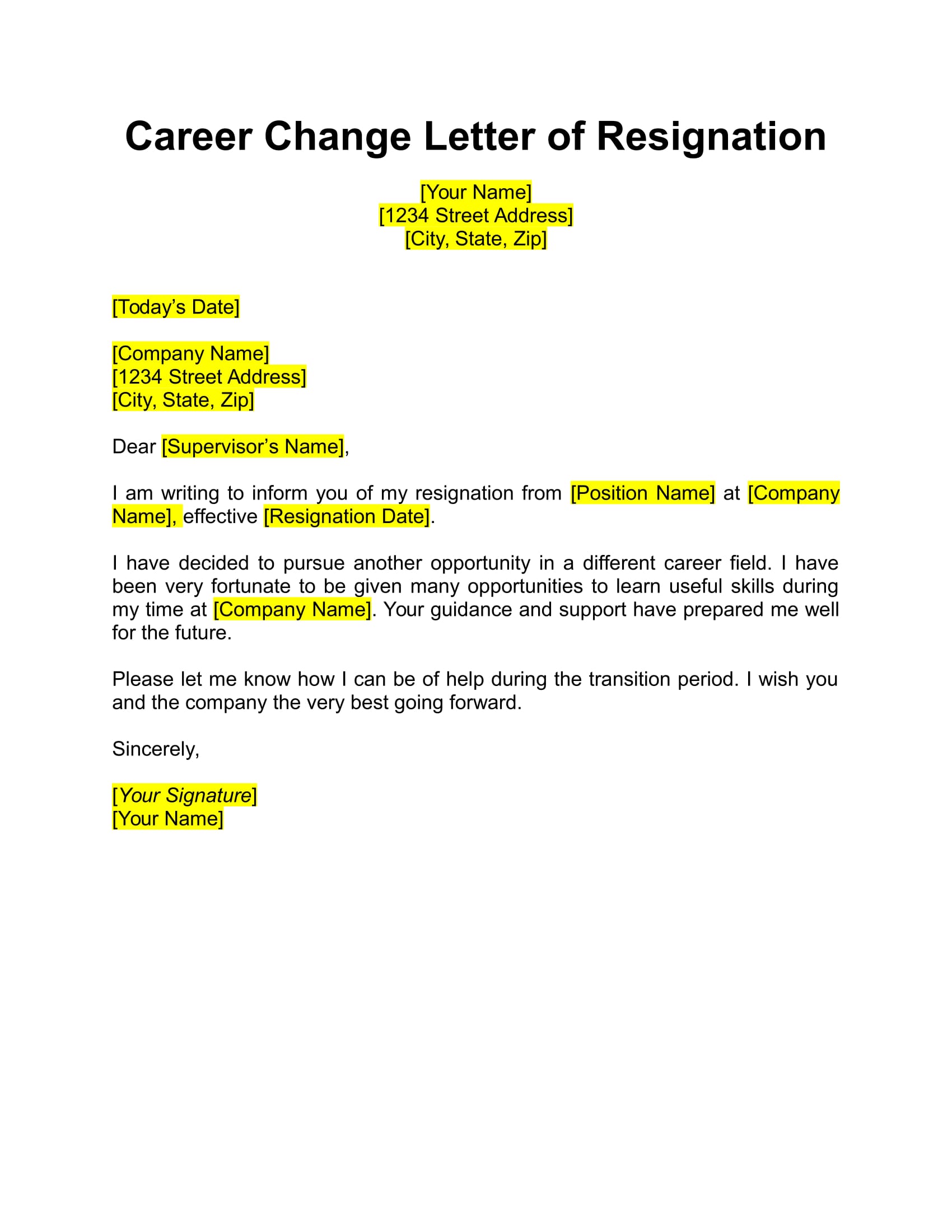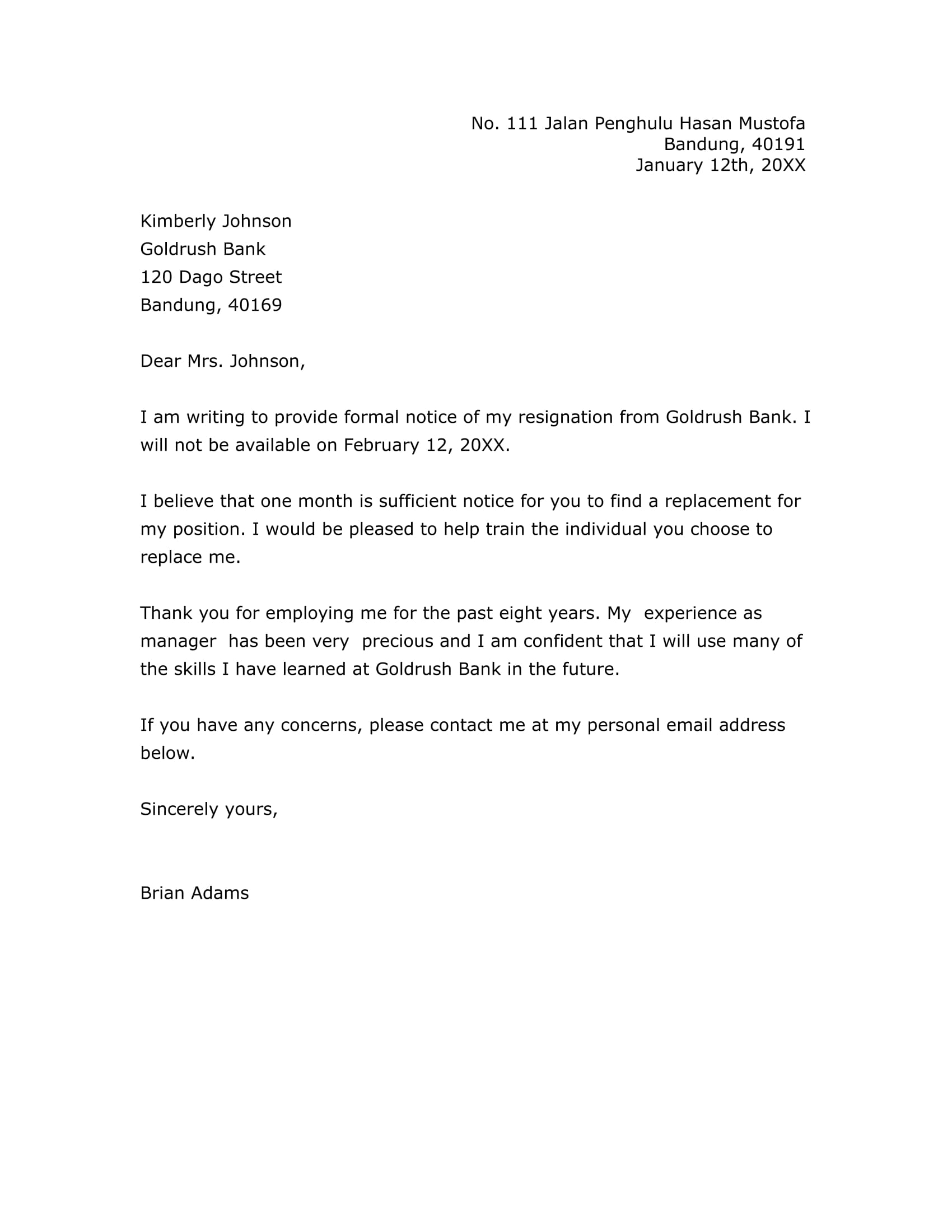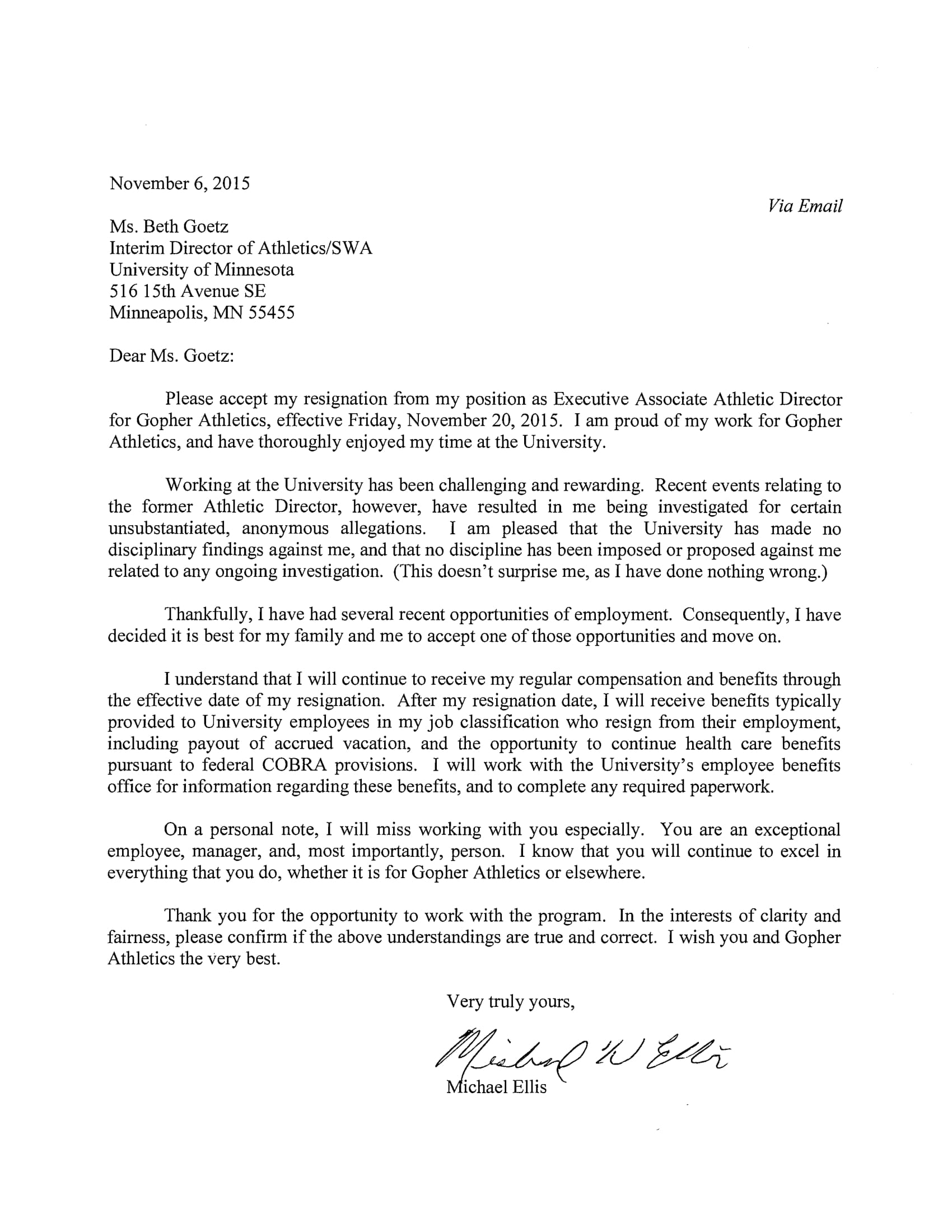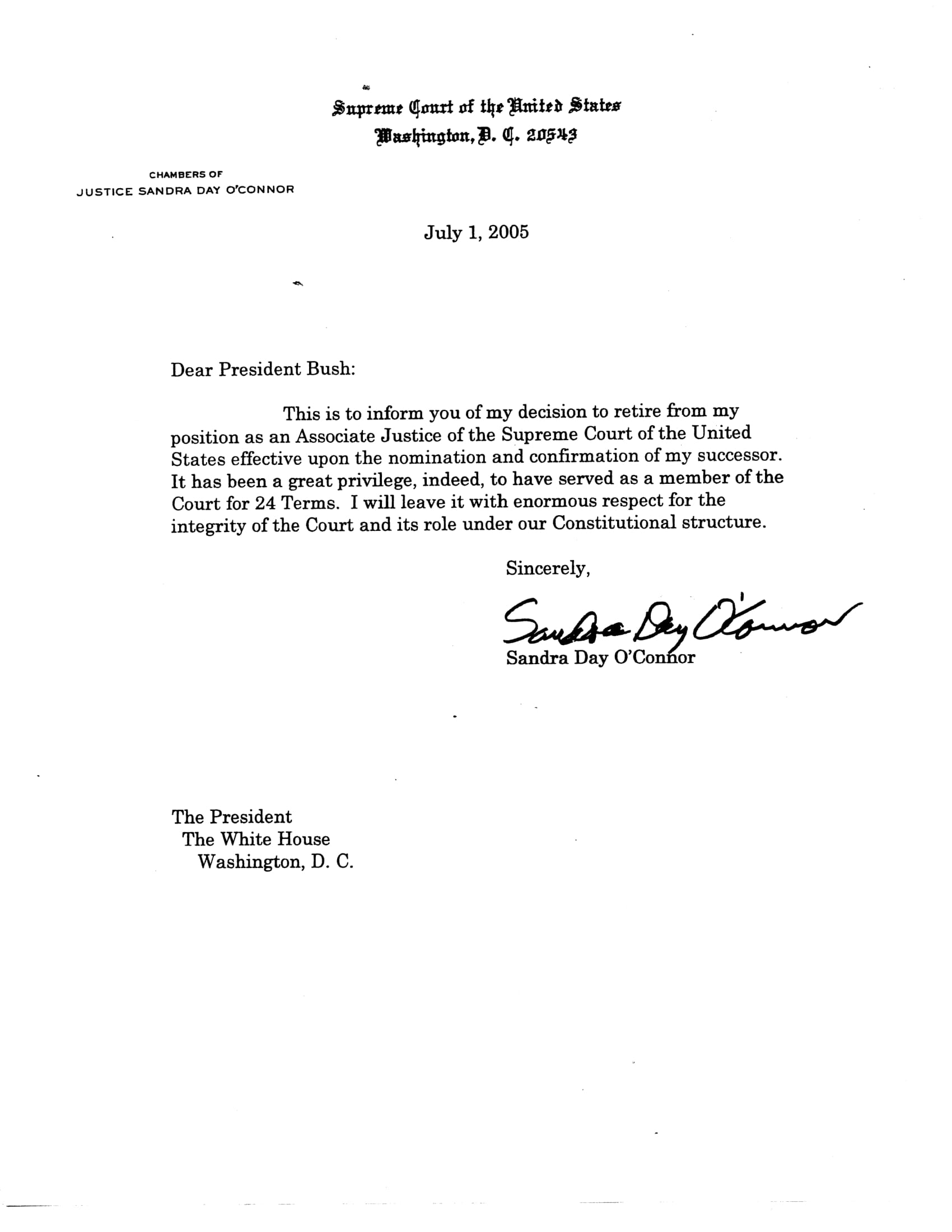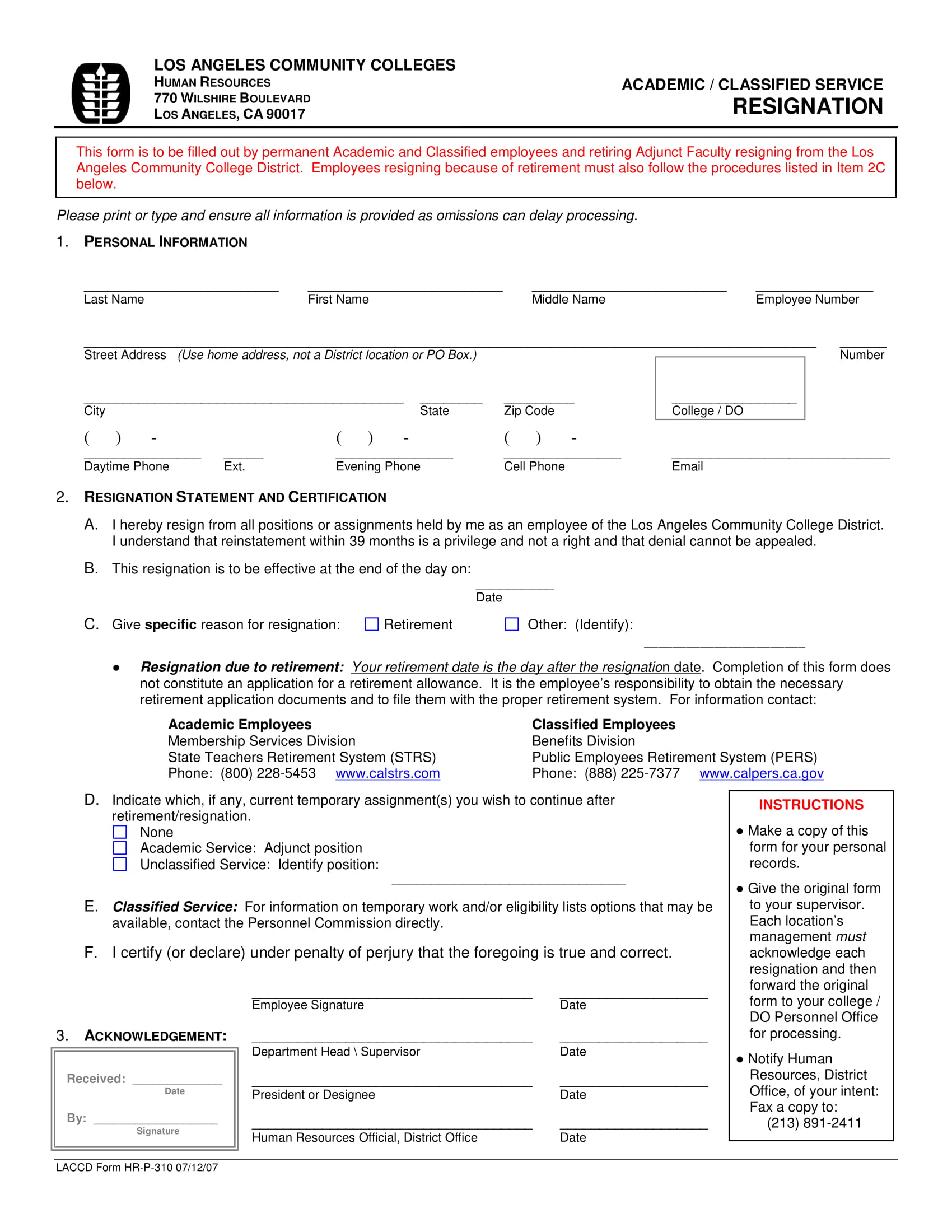27+ Resignation Letter Examples to Download
Some employees resign from their jobs for many personal reasons, whether it’s due to a family problem or pursue something their heart desires. If you wish to do the same, how do you properly leave without tainting the professional relationship you have built with the people that you have worked with? One way to do it is to write a resignation letter and hand it over in two weeks’ notice.
Resignation Letter Template for Personal Reason Example
Immediate Resignation Letter Example
Simple Resignation Letter Example
Work Resignation Letter Example
Director Resignation Letter Example
Nurse Resignation Letter Example
Two Weeks Notice Resignation Letter Example
Heartfelt Resignation Letter Example
Resignation Letter Format Example
Formal Resignation Letter Example
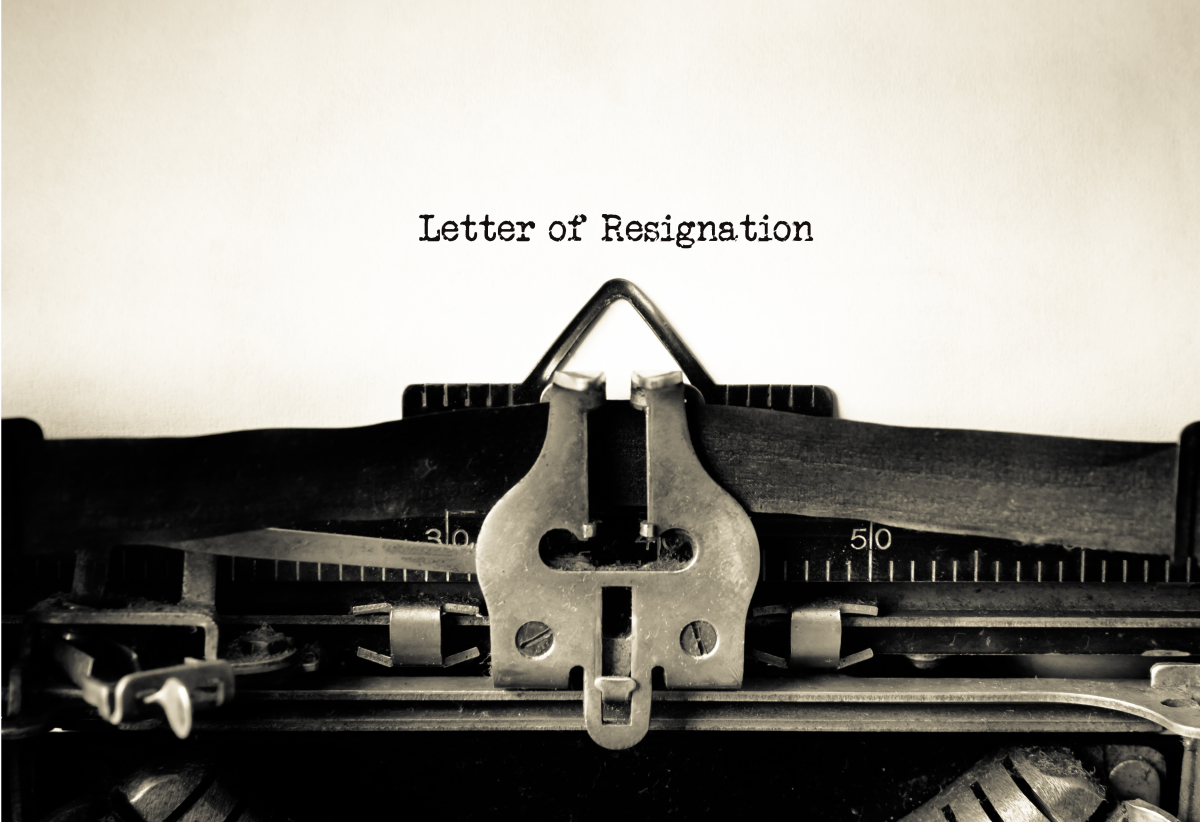
Resignation Letter Template
Sample Resignation Letter
Resignation Letter Example
Professional Nurse Resignation Letter Example
Official Youth Affairs Journalist Resignation Letter Example
Immediate Company Director Resignation Letter Example
Teacher Resignation Letter Example
Employee Resignation Letter Example
Chief Army Resignation Letter Example
University Faculty Resignation Letter Example
Police Resignation Letter Template
Personal Last Minute Resignation Letter Example
Printable Resignation Letter Example
Career Change Resignation Letter Example
Bank Manager Resignation Letter Example
Executive Associate Resignation Letter Example
Associate Justice Retirement Resignation Letter Example
Faculty Resignation Form Example
What is a Resignation Letter?
A resignation letter is a written letter created by the employee to announce their intention of leaving the company that employs them. This is a formal practice done in the professional setting so that employees can part ways with their employer on good terms. The contents usually include their reasons for resigning and their thankfulness for the career growth they received. The notice period can vary from immediate to one month’s notice depending on the reason given.
How to Write a Resignation Letter
As mentioned in an article by Forbes, it matters how you resign as it says a lot about you. Creating the resignation letter itself is not that difficult of a task. Remember that you want to leave on a positive note, you have to write your resignation letter correctly so that you can have a good last impression in the company.
1. Share Your Reasons
When writing your resignation letter, share the reasons as to why you are leaving. It will help your employer understand why you are doing this. For example, let’s say you are a teacher who developed severe asthma and works in a school that is in an area heavy with air pollution. Sharing this health reason will make your employer understand and may make the termination process a lot more accommodating for you if need be.
2. Place the Right Date
Make sure that the date you have indicated in your letter is the same as you have mentioned to your employer during a face-to-face conversation. The time you state in your message will be the basis of the employer’s ability to cease and relinquish your responsibilities, compensation plans, office materials, etc.
3. Be Honest and Get to the Point
Convey the reason for your resignation, tactfully. As mentioned before, you can state your intentions, but it is not necessary to dwell into details and cause unnecessary drama. There is no need to add sentiments and more words to your letter. Stick to the point that you are trying to make that is your resignation.
4. Proofread Your Letter
Before you submit your letter, make sure you have thoroughly reviewed it to correct the errors. This will also let you determine if what you have written in what you want to say to your employer. Edit out any mistakes, be it in spelling, grammar, or punctuation. That way, you will be able to maintain the respectful tone you are going for during your resignation.
FAQs
Should I take some time to consider before making a resignation letter?
Yes, you should! It is always good to consider these kinds of decisions carefully. Before you resign, make sure it is for the right reasons, and you are financially stable to remain unemployed for a few months while looking for a job.
What should I do besides submitting a resignation letter?
Inform your HR department and your employer personally or by email before creating your resignation letter. That way, they can prepare themselves for the exit process and accommodate you during your final working days.
How much time should I render while resigning?
People consider it good form to tender your resignation a month before your last day. That way, everybody from HR to your employer can ready all the necessary paperwork and make the transition of your exit a smooth process for everyone in the workplace.
You may want to leave right away and never return to your workplace, but you must email a resignation letter to help preserve the relationship you have with your employer. Not only will it smoothen out your exit, but it can also leave a good impression in your name. It is also your way of thanking the company for all opportunities it offers and the doors it has opened for your future.


